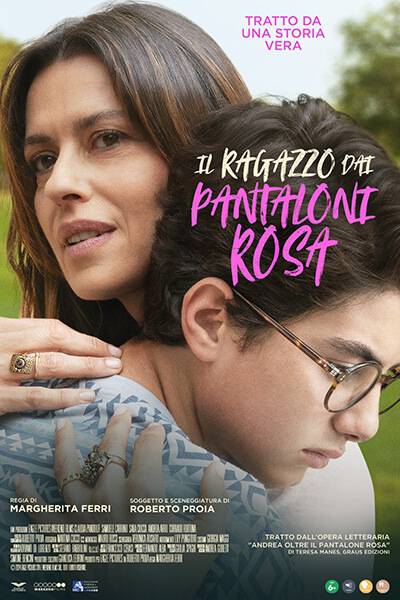
Watch
The dangerous side of words: “The boy with the pink trousers”

An efficient film on the theme of bullying and cyberbullying, inspired from a true and tragic story: that of Andrea Spezzacatena. It is called “Il ragazzo dai pantaloni rosa” (“The boy with the pink pants”) and it is a film that offers itself as an instrument of dialogue among adults and youth, reflecting on the delicate roles of words.
Words are bullets. They are also medicine, oxygen, and balm. They are destruction and the cure. It depends on the function we assign them.
Rumbling in my mind is this reflection on the power of words while watching the film, “The Boy with the Pink Pants”, even though it’s full of life. Margherita Ferri directed this film starting from the true story of Andrea Spezzacatena, who died by suicide on the 20th of November 2012 in Rome, at the age of 15 years, after being a victim of bullying and cyberbullying.
This thought about the power of words sadly moves in the head and heart, even more so when related to the fragility of the youth. To their insecurities and sufferings, to the difficult cultural reality in which they are immersed.
For them and even more for the adults, words can become weapons to point at each other with disturbing ease, and a gun in the hand of a boy is even more dangerous than in the hand of an adult.
Thus, the adult. One cannot not think of him—of the father, the mother, the teacher, the coach, the priest, the music teacher, the uncle, the family friend, even the stranger— while watching this film released on the 7th of November in Italy, after the global preview during the Cinema Festival in Rome.
As the adult has the delicate, arduous yet fundamental task to explain to the youth the power of the words. The healing one, and, even more, the capability of killing with words. He has the duty of training the empathy of the aspirant, apprentice man, to see in his neighbor the one to respect, first, then also to love as himself.
Even more today, as the movie repeats, those words that are not only said appear not only on one wall but are carved and tattooed on that web that eliminates the time and space. That reaches you always and everywhere.
In the film, when a video is shared against his will and person, Andrea (well interpretated by Samuele Carrino) starts jumping from one boy to another through social media and devices.
Here the images and words take on disruptive, devastating speed and force, like the snow of an avalanche. The classmate increases the virality of that deplorable content perhaps because he feels part of the group or because he is not guided, he is not used to, or not trained by the adult to identify with the other. In his or her suffering.
The superficiality of an error sums up to many others that transform it into a bigger danger. Il shapes a solitary, silent drama that, in some cases, like that clearly narrated in the film, penetrates the endemic fragility of the adolescent and can lead an extraordinary boy like Andrea, in love with life and extremely sensible to the next, to carry out such an extreme act.
Teresa Manes, mother of the real Andrea Spezzacatena following her son’s death discovered a Facebook profile on which he was the target. The profile was called “the boy in pink pants,” after Andrea had worn a pair of pants originally red, then turned pink after washing, to school.
Terea, interpreted by Claudia Pandolfi in the film, has written a book on the tragic story of her son Andrea, other than the pink pants, and for her enormous work on the theme, for her unstoppable work of raising awareness on bullying, even in schools, she was nominated Knight of Merit of the Republic by Sergio Mattarella, the President of the Italian Republic.
The Boy with the Pink Pants is thus the most recent step of a journey that exists since years, and it is, in its simplicity and clarity an important film, no better a necessary film. As it is an instrument of dialogue among children and adults capable of touching the hearts of both.
It is a film on the importance of Andrea, on his beauty, on his intelligence, on his purity, on his brightness and sensibility. Only in the end, suddenly like a punch in the stomach, it becomes a film on his death, and this reveals to us clearly and dramatically how bullying and cyberbullying can destroy the life of a youngster.
The function of this emotional film is that of educating the youth—and the adults—to disactivate the dangerous gaze of those words that Andrea says in the film, which can be “like some flower vases that fall from the balcony. If you are fortunate, you miss them and keep walking, but instead, if you are a bit slow, they fall on you and kill you.” It is one of the many useful sentences of “The Boy with the Pink pants.” A film to be shown in schools, as the words, as Andrea’s mother explained, “are also stones, and with the stones one can also build.”.



